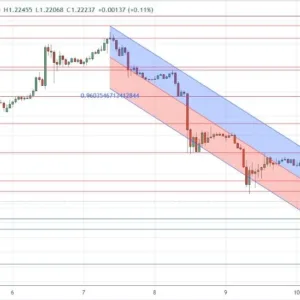Atsushi Mimura, Japan’s Vice Finance Minister For International Affairs and top foreign exchange official, on Friday, warned against speculative moves on the foreign exchange (FX) market, adding that he will take appropriate action against excessive forex moves.
Bạn đang xem: Japan’s Top FX Diplomat Mimura says will take appropriate action against excess FX moves
Key quotes
Am gravely concerned about forex moves.
Will take appropriate action against excessive forex moves.
Xem thêm : China Foreign Exchange Committee pledges to support the Yuan
Alarmed, including over speculative moves.
Believe it is not appropriate for me to comment further on forex.
Won’t comment on BOJ’s communication given its independence.
Market reaction
At the time of press, the USD/JPY pair was down 0.13% on the day at 157.12
Bank of Japan FAQs
The Bank of Japan (BoJ) is the Japanese central bank, which sets monetary policy in the country. Its mandate is to issue banknotes and carry out currency and monetary control to ensure price stability, which means an inflation target of around 2%.
Xem thêm : Mexican Peso Gains After a Day of Strong Momentum
The Bank of Japan embarked in an ultra-loose monetary policy in 2013 in order to stimulate the economy and fuel inflation amid a low-inflationary environment. The bank’s policy is based on Quantitative and Qualitative Easing (QQE), or printing notes to buy assets such as government or corporate bonds to provide liquidity. In 2016, the bank doubled down on its strategy and further loosened policy by first introducing negative interest rates and then directly controlling the yield of its 10-year government bonds. In March 2024, the BoJ lifted interest rates, effectively retreating from the ultra-loose monetary policy stance.
The Bank’s massive stimulus caused the Yen to depreciate against its main currency peers. This process exacerbated in 2022 and 2023 due to an increasing policy divergence between the Bank of Japan and other main central banks, which opted to increase interest rates sharply to fight decades-high levels of inflation. The BoJ’s policy led to a widening differential with other currencies, dragging down the value of the Yen. This trend partly reversed in 2024, when the BoJ decided to abandon its ultra-loose policy stance.
A weaker Yen and the spike in global energy prices led to an increase in Japanese inflation, which exceeded the BoJ’s 2% target. The prospect of rising salaries in the country – a key element fuelling inflation – also contributed to the move.
Nguồn: https://cumlaude.fun
Danh mục: News






